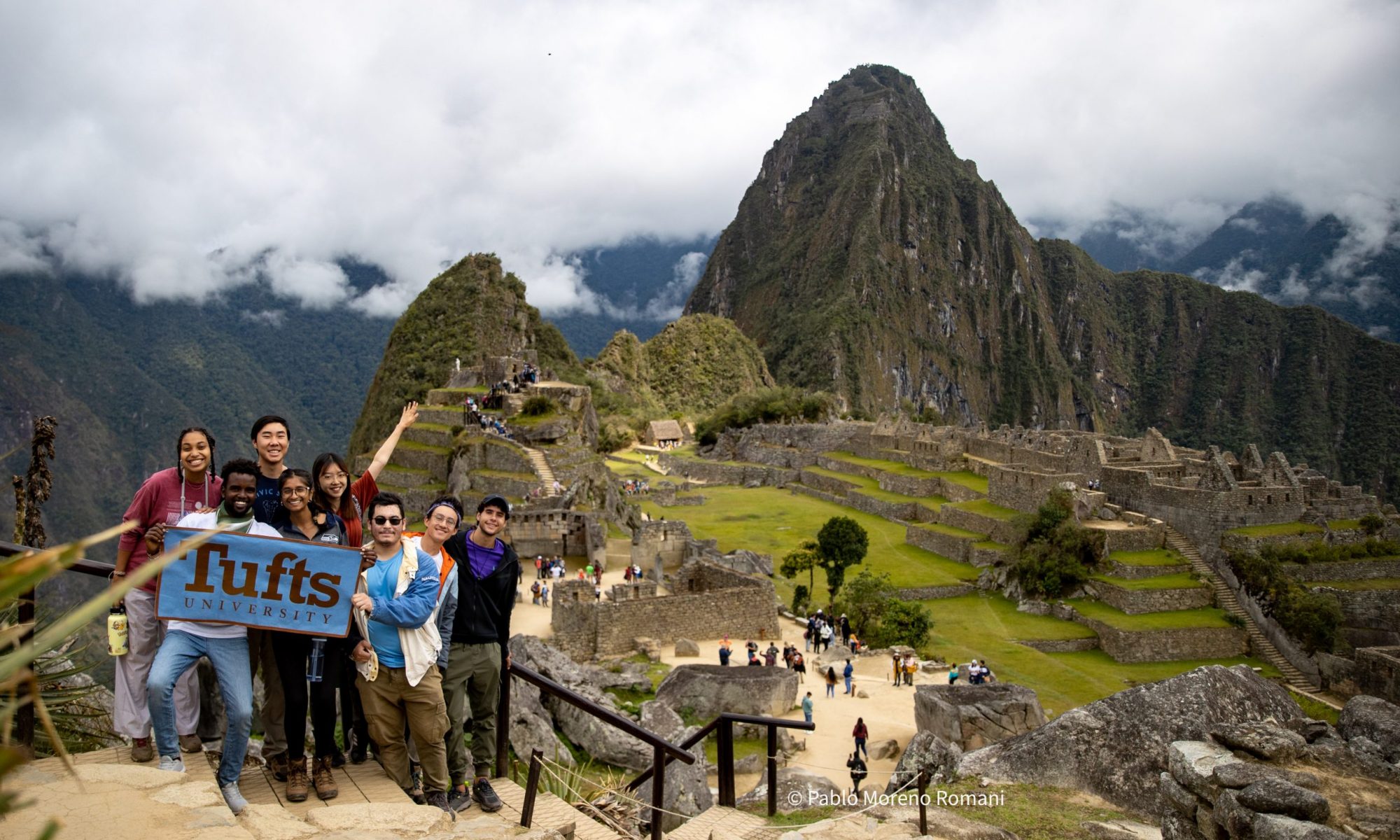
by Stone, Tufts 1+4 Participant
I’ve had a surprisingly eventful first week and a half with my host family considering I haven’t really done much. My first night I went to the local pulperia, a small store at the end of the block, where it turns out you have to tell the person behind the counter what you want and they’ll get it for you. The next morning, a little while after waking up, I heard the roaring of a machine outside my window. Having grown up in suburbia I figured it was probably a lawn mower, and only later remembered that I hadn’t seen any lawns. A few minutes later the noise got louder and a white colored smoke began floating in through the windows. I opened the door, planning to escape into the main part of the house, but smoke started billowing in through it. I slammed it shut, dropped to the floor near my bed and started breathing in through a sheet. After a few minutes, both the noise and the smoke dissipated and I was able to continue getting ready for work. I didn’t know how to ask what the smoke was in Spanish, so I didn’t try to find out from my host dad when he walked me to Sawyer’s house at which I would catch a ride into work. When I arrived at La Salle University, my host agency/workplace for the next nine months, I told the program coordinator and director what had happened and apparently the house was being fumigated but I hadn’t been warned. On the upside, as Sawyer’s host dad put it, I had my first funny story.
As it turned out, I have the worst Spanish of the Amigos de las Americas participants. My first morning at La Salle was really just an introduction, and thank goodness for that, because I could barely understand what anyone was saying. The main part that I was able to comprehend was when Professor Saborido, who I would be working with, showed us the solar panel system. I was pretty psyched about that, and the others were impressed as well. That afternoon I went home and spent hours studying Spanish.
The next day I felt much better prepared and understood a little more of what people were saying. When Professor Saborido arrived he introduced me to his assistant Daniel who speaks English. I was so relieved about that. Daniel is going to be here for about another two months, long enough so that he can help me with communication while I transition, but not so that I can rely on his help for too long to properly learn Spanish. Daniel is from Austria and is trilingual, as he can speak German, Spanish, and English. I think that is amazing, and of course feel useless in comparison.
The professor then gave me a document outlining the renewable energy systems in La Salle, both solar and wind, which I was to translate to English so that I could understand it. While I took AP Environmental Science my junior year and know a fair amount about the theoretics of renewable energy, I have never taken a science class in which I learned about energy and the specifics of how it works. Understanding that document took more than a mere translation. I spent the weekend studying up on both Spanish and electrical engineering. Fun fact: current is essentially the flow of electrons. Did I know that before last week? No, but I probably should have. I put a lot of my own time into learning which was lots of fun as well as tiring, but it turned out I needn’t have done quite so much on my own, as when I got into work on Monday it turned out there was pretty much nothing else to do. At the very end of the day before the five day weekend due to Independence Day started, another professor showed me a document in Spanish detailing how to set up a solar panel system. We were going to start setting one up on Monday. I walked home planning for the busy weekend ahead.
The next day I went with my host mom, my host grandmother and her great granddaughter (sometimes there are four generations in the house and that is awesome) to the Independence Day parade. There were costumes, music and dancing all worn and performed by high school students, college students, and teachers. One of them was Sawyer. Before it started, my host mom offered me a square of flavored ice she had just bought, which I gladly accepted. I don’t know if that was the cause, but less than half way through the parade I had to walk home due to severe intestinal cramping. On the way it started to rain. I reached the house just as it really started to pour. I took a nap and woke up at eight PM, the pain having left me. I skipped dinner, went back to sleep, slept through an earthquake and for fourteen hours, which scared the heck out of my host family as I found out the next morning when my host grandma knocked on my door. I apologized for the worry and told them I felt much better, which I did.
That night I went with the other León participants, Sawyer, Mateo, and Isabelle, to an exercise/dance class which was like Zumba but weirder. We all had an amazingly fun time and it was nice to be able to talk to Isabelle and Mateo for the first time in a week. Unfortunately, I started to get a migraine, and I felt super nauseous during dinner. I woke up a little after twelve am and the migraine was gone, but I was sick to my stomach again. The next morning I ate food and started feeling better. Though I missed lunch and volcano boarding with my friends, I danced with my host family, and everyone was very encouraging (probably too encouraging considering my general lack of dancing skills) and I played with the three year old great granddaughter (my host niece?) for a while. Unfortunately, around three I started feeling sick again. My host mom came in with some Gatorade to re-hydrate me and told me that if I needed anything I should tell her and to feel free to knock on her door in the middle of the night because now, “Soy tú Mama.” ‘I am your mother.’
If anything could turn hurling three times in an hour into a slightly good thing, it was that.












 One word: Raspado. I learned from a local tonight that there are two seasons in León, the summer and the harsh summer. I am currently living in the summer and it’s already unbearable. Can it really get worse than this? Luckily I learned about Raspado, which is basically shaved ice. You can get it from a local vender in Central Park, which is right outside of the Cathedral. There are also different flavors you can choose from, I got dulce de leche, or caramel. This is the best snack to cool you down internally, I think it will become my best friend over these next 9 months.
One word: Raspado. I learned from a local tonight that there are two seasons in León, the summer and the harsh summer. I am currently living in the summer and it’s already unbearable. Can it really get worse than this? Luckily I learned about Raspado, which is basically shaved ice. You can get it from a local vender in Central Park, which is right outside of the Cathedral. There are also different flavors you can choose from, I got dulce de leche, or caramel. This is the best snack to cool you down internally, I think it will become my best friend over these next 9 months.


 All in all, my experience scoping out León was very successful. The people here are so welcoming, though I think they overcharge me at the market, most likely because I’m chele. As I continuously get more eager to move into my host family, I have to complete my training with Amigos de las Americas over the next few days. I hope to check back in as soon as possible. Adio. (Nicaraguans don’t usually pronounce the s)
All in all, my experience scoping out León was very successful. The people here are so welcoming, though I think they overcharge me at the market, most likely because I’m chele. As I continuously get more eager to move into my host family, I have to complete my training with Amigos de las Americas over the next few days. I hope to check back in as soon as possible. Adio. (Nicaraguans don’t usually pronounce the s)